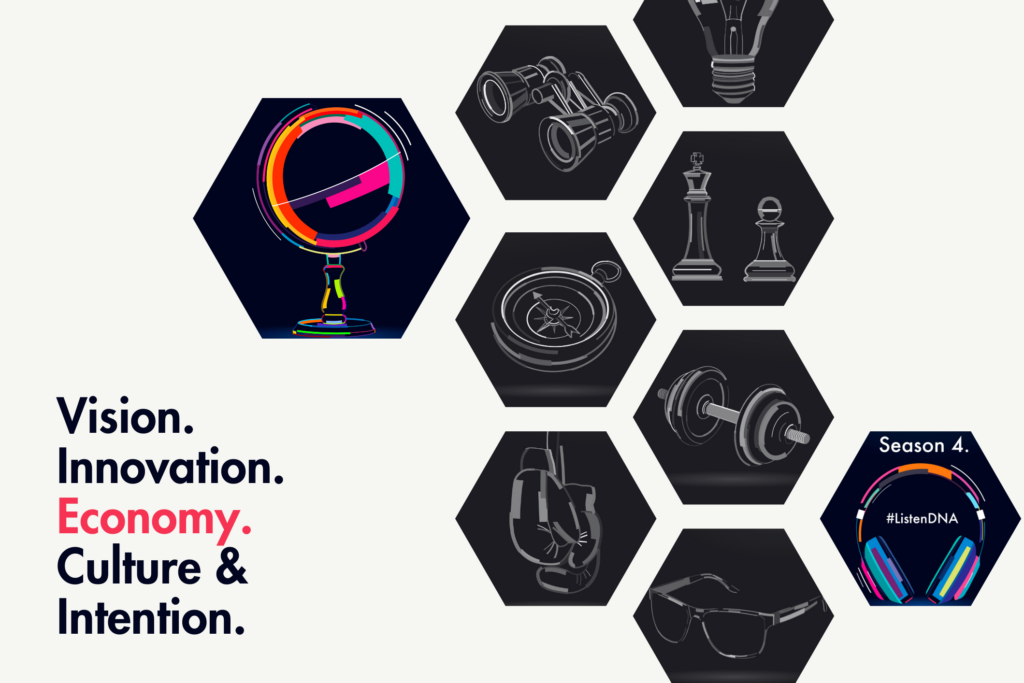

Vanderbilt Health DNA: Discoveries in Action
At Vanderbilt, the drive to discover, care, learn and share is in our DNA – it defines who we are. Discoveries in Action is about the big ideas and breakthroughs happening right here in Nashville, Tennessee from Vanderbilt Health.
The DNA series is designed to spark conversations about medicine, health and society.
It delves into the opportunity — and imperative — of creating a system and culture in health care that values the contributions of the person as a catalyst for working toward better health for all. The first season launched in Aug. 2020 and has been downloaded around 95,000 times in more than 120 countries.
On Season 4, leaders from around the VUMC enterprise explore issues facing businesses across industries, and how the enterprise is experimenting with and designing solutions for problems — old and new — by supporting smart people with visionary ideas.
You’ll track how a few ideas fused and matured over decades into the engine of a global collaboration, and why progress requires bold confidence in people, taking calculated risks, and transformative optimism about what could be next.
Structured as a four-part case study, whose endings are yet unwritten, season listeners get a peek into how a storied institution thinks about change, disruption from within and around, and rallies around initiatives designed to improve complex medical, research, community and workplace challenges.
Join our community on Twitter @VUMC_Insights and follow along as new episodes are released. #ListenDNA
Video courtesy of Vanderbilt University Medical Center Strategy Share
